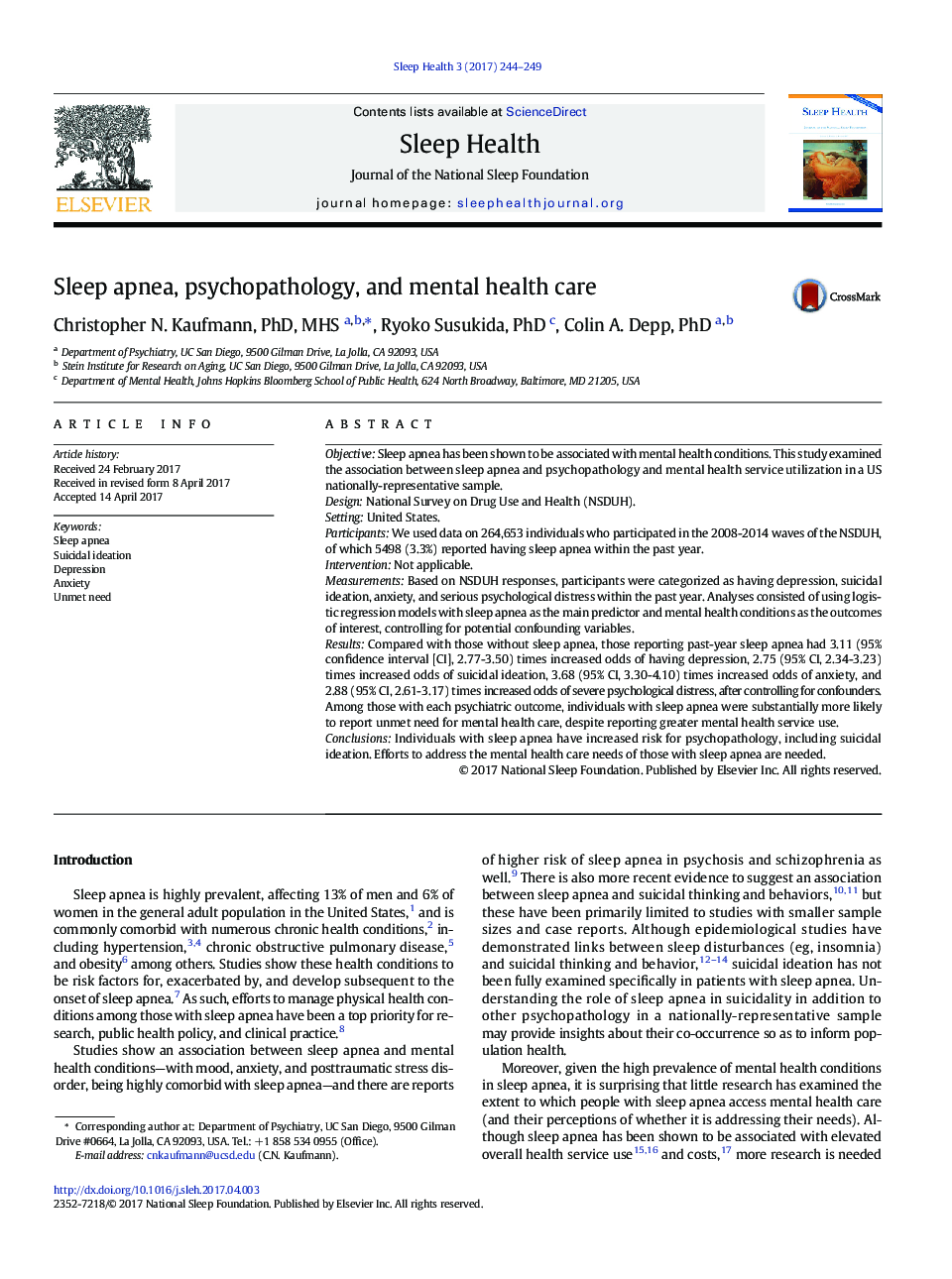| Article ID | Journal | Published Year | Pages | File Type |
|---|---|---|---|---|
| 5039552 | Sleep Health | 2017 | 6 Pages |
ObjectiveSleep apnea has been shown to be associated with mental health conditions. This study examined the association between sleep apnea and psychopathology and mental health service utilization in a US nationally-representative sample.DesignNational Survey on Drug Use and Health (NSDUH).SettingUnited States.ParticipantsWe used data on 264,653 individuals who participated in the 2008-2014 waves of the NSDUH, of which 5498 (3.3%) reported having sleep apnea within the past year.InterventionNot applicable.MeasurementsBased on NSDUH responses, participants were categorized as having depression, suicidal ideation, anxiety, and serious psychological distress within the past year. Analyses consisted of using logistic regression models with sleep apnea as the main predictor and mental health conditions as the outcomes of interest, controlling for potential confounding variables.ResultsCompared with those without sleep apnea, those reporting past-year sleep apnea had 3.11 (95% confidence interval [CI], 2.77-3.50) times increased odds of having depression, 2.75 (95% CI, 2.34-3.23) times increased odds of suicidal ideation, 3.68 (95% CI, 3.30-4.10) times increased odds of anxiety, and 2.88 (95% CI, 2.61-3.17) times increased odds of severe psychological distress, after controlling for confounders. Among those with each psychiatric outcome, individuals with sleep apnea were substantially more likely to report unmet need for mental health care, despite reporting greater mental health service use.ConclusionsIndividuals with sleep apnea have increased risk for psychopathology, including suicidal ideation. Efforts to address the mental health care needs of those with sleep apnea are needed.
